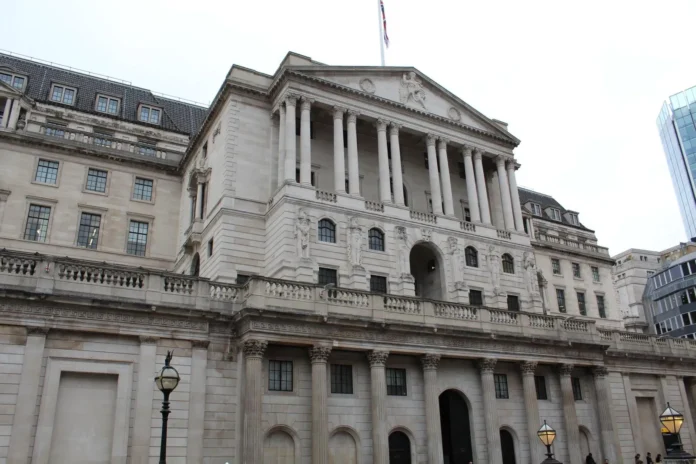Demand for mortgages for house purchases is expected to fall over the summer months, despite an easing in credit availability, according to the Bank of England’s latest Credit Conditions Survey.
The Q2 2025 report, based on responses from major UK lenders, shows that demand for secured lending for home purchases rose between March and May.
However, banks and building societies anticipate a decline in that demand through Q3, as high borrowing costs and affordability constraints continue to weigh on potential buyers.
The outlook comes despite lenders reporting that secured credit availability to households improved in Q2 and is expected to rise further by the end of August.
While finance may be more accessible, wider market conditions – including interest rates, housing costs and consumer sentiment – are likely to limit new mortgage activity in the months ahead.
RISE IN REMORTGAGE
In contrast, remortgaging demand rose during Q2 and is expected to increase further in Q3, as borrowers seek to refinance existing deals amid continued rate volatility.
Unsecured lending also rose in Q2, driven by increased demand for credit cards and personal loans. However, this growth is expected to plateau in Q3, with demand for credit cards projected to remain stable and a slight dip anticipated in other forms of unsecured borrowing.
On the corporate side, credit availability for businesses marginally improved in Q2 and is expected to edge higher in Q3.
Small and medium-sized enterprises saw the most notable increases in access to finance, while large firms reported only modest improvement.
Demand for corporate lending is expected to rise slightly for both small and large companies but remain flat for medium-sized businesses.
Default rates across both secured and unsecured household lending remained unchanged in Q2 and are expected to stay stable through Q3. However, lenders noted a slight increase in losses given default on secured loans, a trend expected to continue modestly in the next quarter.
WEAKENING LABOUR MARKET

Simon Gammon, Managing Partner, Knight Frank Finance, said: “Lenders expect demand for home purchase mortgages to soften through the summer – a seasonal trend, but also a reflection of where mortgage rates were when the survey was taken in late May and early June.
“At that point, the best fixed-rate pricing had plateaued just below 4%, and with swap rates edging higher due to hotter-than-expected inflation data, there appeared little scope for further easing.”
“We’re now seeing signs of a weakening labour market, and the Bank of England’s tone has changed.”
But he added: “That picture has shifted. We’re now seeing signs of a weakening labour market, and the Bank of England’s tone has changed – there’s more focus on downside risks to growth than inflation.
“That’s helped drive rate cuts from all major lenders in the past ten days, often by as much as 0.2 percentage points. While further reductions will be marginal, this could support mortgage activity over the summer and tee up a much busier autumn.
“The remortgaging market remains more robust. Demand rose in Q2 and is expected to climb further through the summer as 1.8 million borrowers refinance this year, many coming off the ultra-low rates agreed in 2020.”
CONSUMER CONFIDENCE IS STRENGTHENING

Richard Pinch, senior director, risk, at Broadstone, said: “Households and lenders appear to have looked through the market volatility driven by ‘Liberation Day’ with a loosening in the supply of credit for secured and unsecured lending.
“Lenders expect to see a further expansion in the availability of credit over the coming months which should further stimulate economic activity in the UK off the back of 0.7% growth in GDP through Q1, a significant increase compared to the prior quarter.
“Increasing demand for borrowing in Q2 suggests strengthening consumer confidence, but the growth in demand for mortgage borrowing is likely to have been driven by the end of the stamp duty holiday at the end of March.
“Market volatility never appears far away – as yesterday’s movement in bond and currency markets reminded investors – and the likelihood of tax rises at the Autumn Budget is growing, but for now market sentiment remains resilient.”





